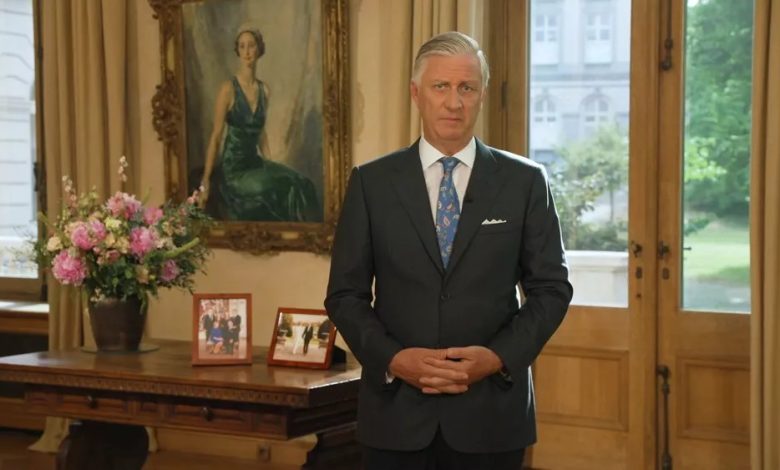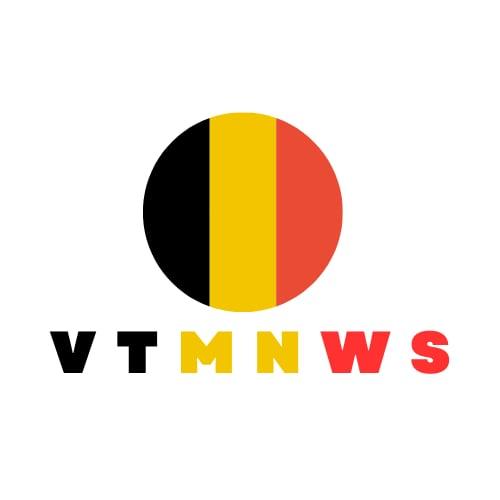King Philippe’s July 21 Speech on Gaza Conflict: “A Disgrace to Humanity”

On Belgium’s National Day, July 21, 2025, King Philippe delivered a deeply resonant and unusually direct address that broke with royal convention. Speaking with somber intensity, the King condemned the ongoing violence in Gaza, describing it as “a disgrace to humanity.” His remarks, widely seen as one of the most forceful in recent royal memory, echoed the growing moral urgency felt both within Belgium and across Europe.
A Moment of Uncommon Clarity
Traditionally, Belgium’s monarchs maintain a neutral tone in their speeches, particularly concerning international affairs. However, this year’s address marked a departure. King Philippe did not hide behind diplomatic generalities. Instead, he offered a raw, heartfelt response to what he described as a “catastrophic human tragedy.” He lamented the immense toll the conflict has taken on civilian populations and called for the restoration of humanity’s shared values of compassion, peace, and dignity.
“The suffering of innocent people—children, families, entire communities—should shake our collective conscience,” the King said. “We cannot turn away. We must not allow indifference to become our response to injustice.”
A Moral Rather Than Political Stand
Although the King holds no executive political power, his speech carried significant symbolic weight. Rather than adopting a political stance, his message was framed as a moral imperative—a call to recognize and respond to the depth of human suffering occurring far beyond Belgium’s borders. The language he used was deliberate, measured, but unmistakably firm.
By using terms such as “disgrace” and “unacceptable human cost,” he highlighted not just the scale of destruction, but the ethical responsibility of the global community to intervene, or at least to bear witness. His speech appealed not to politics, but to humanity.
Resonating with the Belgian People
In recent months, the Belgian public has been increasingly vocal in its calls for action and accountability in the face of the escalating humanitarian crisis in Gaza. Peaceful demonstrations have been held across the country, and civic organizations, religious leaders, and humanitarian groups have urged the government to do more to protect innocent lives.
King Philippe’s message resonated strongly with this sentiment. His words echoed what many citizens have felt but not heard reflected in official language—a recognition that the world cannot remain silent while civilian populations suffer unimaginable hardship.
Belgium’s Evolving International Voice
Belgium has long been known for its commitment to diplomacy, human rights, and international law. The King’s statement is in line with the nation’s evolving approach to foreign policy, which increasingly emphasizes the moral dimensions of international crises. While historically cautious in its global rhetoric, Belgium has shown a growing willingness to speak out in recent years when fundamental human rights are at stake.
The King’s speech, while not legally binding, adds momentum to this shift. It reinforces Belgium’s role as a voice for humanitarian values within international institutions, and signals that silence is no longer compatible with the country’s ethical standards.
The European Context
Within Europe, Belgium is part of a wider movement calling for a stronger humanitarian response to the crisis in Gaza. Several European countries have pushed for increased aid, the creation of humanitarian corridors, and international accountability for actions that violate human rights norms.
In this broader context, King Philippe’s words contribute to a growing European chorus that emphasizes moral clarity over political convenience. His message underscores the belief that leadership in the 21st century must be guided not only by strategy but by conscience.
Impact on Belgium’s Political Landscape
Although the monarchy is constitutionally limited in its political role, the King’s speech is likely to influence public discourse and may indirectly impact the direction of Belgium’s foreign policy. When a head of state—especially one traditionally neutral—speaks so directly about human suffering, it invites reflection at all levels of governance.
In the weeks following the speech, it is expected that discussions within Belgium’s parliament and government institutions will be shaped by this new tone of urgency. Belgium may push for more humanitarian aid, stronger international cooperation, or clearer positions in international forums that address the ongoing conflict.
A Personal Appeal for Global Humanity
Perhaps the most powerful element of King Philippe’s speech was its deeply personal tone. He did not speak in abstractions. Instead, he humanized the crisis. His words painted vivid pictures of lives lost, communities destroyed, and futures cut short. His appeal was not just to Belgians, but to all people of conscience around the world.
“We must remember that behind every statistic is a child, a parent, a story,” he said. “These are human beings who, like us, seek only to live in peace and dignity.”
This framing lifted the speech beyond politics and placed it squarely in the realm of universal human values. It served as a reminder that compassion, justice, and empathy are not optional—they are essential to any civilized society.
King Philippe’s July 21 speech will likely be remembered as one of the most impactful moments of his reign. At a time when global events often seem mired in complexity and division, his words offered moral clarity. He reminded his nation—and the world—that silence in the face of injustice is complicity, and that true leadership begins with empathy.
In calling the Gaza conflict a “disgrace to humanity,” King Philippe did more than express disapproval. He issued a call to action—one rooted not in politics or ideology, but in a shared belief in the sanctity of human life.
As the world watches and history unfolds, Belgium’s monarch has made it clear: we are all accountable, and we must all care.







